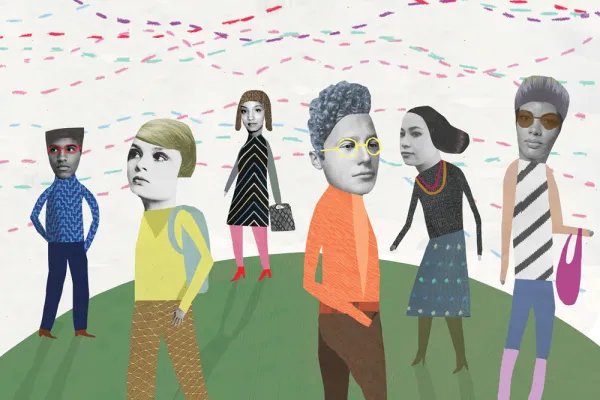Whose Turn Is It to Clean Up the Atmosphere?
Alum News

Published March 26, 2020
The air you are breathing right now may be the air I was breathing last week. Air is shared. It has no boundaries. No one owns the atmosphere, and yet everyone is responsible for it.
This can be problematic. Whenever a resource is shared, it’s in danger of becoming a tragedy of the commons—that is, it’s in danger of being destroyed more easily than a resource that is owned. That’s an elaborate way of saying that we take care of our own stuff but don’t take care of stuff that belongs to everyone.
A 1968 article in Science magazine by Dr. Garrett Hardin described the concept of the tragedy of the commons with the example of cattle herders who share the same land. All the herders had every incentive to increase the size of their own herds even though the land they shared was limited. “Ruin is the destination toward which all men rush, each pursuing his own best interest in a society that believes in the freedom of the common. Freedom in the commons brings ruin to all,” Hardin wrote.
If you can step past the outdated language that implies all humans are male, the concept described is quite relatable (even for those of us with limited herding experience). On a small scale, anyone who has ever noticed a putrid smell coming from the office refrigerator—shared by everyone, cleaned by no one— has firsthand experience with the tragedy of the commons. On a large scale, climate change is a tragedy of the commons.
We all share the same air, so we must all take responsibility. Or lose everything.
Excess greenhouse gases pour into our shared atmosphere when individuals, nations and corporations act in their own best interests instead of in the best interests of the planet. What’s especially challenging is that this particular commons is largely invisible. We can’t see air. Greenhouse gases are invisible, too.
Why do people treat the commons with less care? According to Hardin, “Natural selection favors the forces of psychological denial. The individual benefits as an individual from his ability to deny the truth even though society as a whole, of which he is a part, suffers.”
The story of climate change looks like a tragedy right now. But we all are still writing the story. It doesn’t have to end in complete tragedy.
I’m often asked questions like, “What’s one simple thing that people should do to stop climate change?” I never know quite how to respond. It would be so convenient if there were one simple thing to solve this global problem, but instead, there are myriad solutions and they are all important. (For ideas, go to the Drawdown website.) But I do have a simple philosophy that I use to guide my decisions, and it is this: Don’t destroy the commons.
We are making decisions all the time. Most are small. Some are large. All decisions have an impact on the atmosphere or another environmental commons. Making decisions that protect our invisible commons is a good way to start. Voting for those who will make decisions that do the same on a larger scale helps, too.
Stopping climate change can seem impossible, but if this problem has taught us anything it’s that our actions make a difference. With good decisions, our actions can solve the problem. As you are making decisions and taking action, at some point someone will likely tell you that solving climate change isn’t worth it, or that your actions won’t make any difference. Don’t let them stop you. Instead, take a breath and remember the value of protecting the atmosphere we share.
This story appears in the Spring 2020 issue of the Smith Alumnae Quarterly.
SMITH ALUMNAE QUARTERLY
Special Climate Issue

Mission: HEALTHY EARTH
How the Smith community is fighting to save our planet
SMITH ID
LISA GARDINER ’95
Boulder, Colorado
SCIENTIST EDUCATOR: Author of Tales From an Uncertain World: What Other Assorted Disasters Can Teach Us About Climate Change (2018)
MAJOR: Geology
FURTHER EDUCATION: Master of fine arts in creative nonfiction writing, Goucher College; doctorate in geological sciences, University of Georgia
Illustration by Katherine Streeter